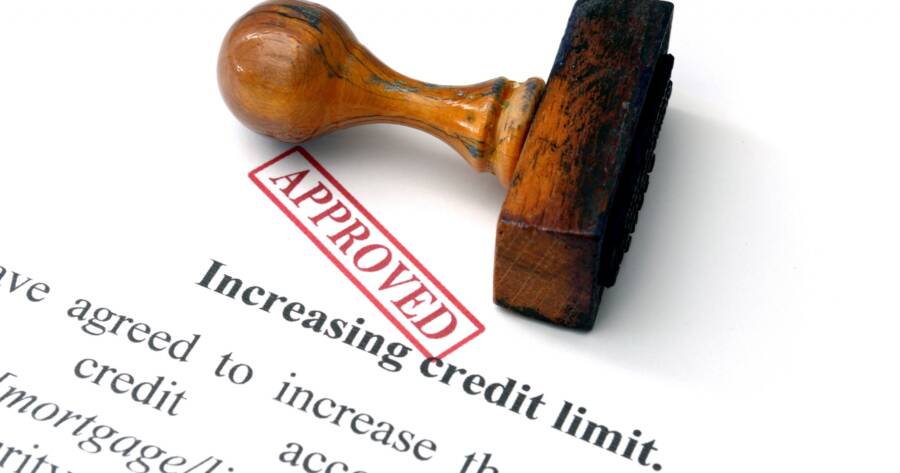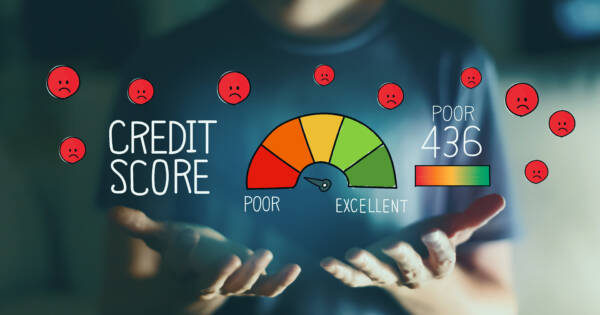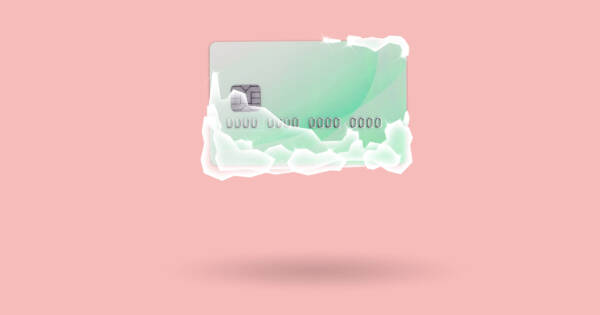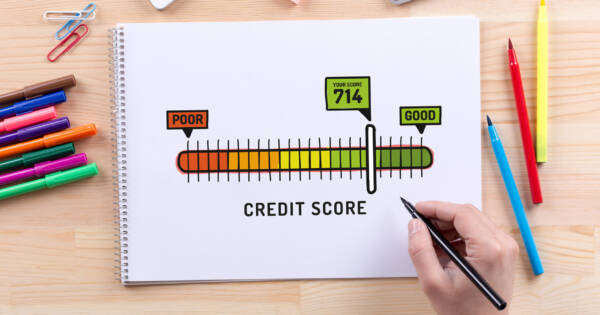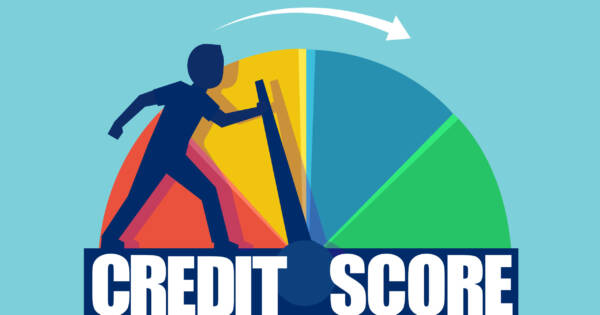Credit limit increases are a double-edged sword. On one hand, accepting your credit limit increase can improve your credit score. On the other hand, having more credit can be risky. If you’re not careful, it can lead to greater amounts of debt. So what should you do if your credit card company offers you a credit limit increase? Like most things financial, the answer is “it depends.”
Advantages of a Higher Credit Limit
Credit Utilization
When you accept a credit limit increase, it can result in a lower credit utilization. Of course, that’s assuming you act responsibly and don’t increase your spending. Why is this a good thing? Credit utilization refers to the amount of credit you’re currently using compared to the total amount of credit you have available.
Credit reporting agencies such as Equifax and TransUnion use credit utilization to help calculate your credit score. In fact, 30% of your credit score is based on credit utilization. Here’s a quick example. Let’s say you have a single credit card with a $5,000 credit limit and a $2,500 unpaid balance. You are utilizing 50% of your available credit. If your credit limit increases to $7,500, your $2,500 balance becomes 33.25% of your available credit. Again, that assumes you don’t instantly use the higher credit limit to spend more. The lower you keep your credit utilization over time, the higher your credit score.
Financial Emergencies
Credit often isn’t something you can go out and get when you desperately need it. In most cases, credit is earned by being disciplined and responsible over the long term. If you don’t max out your credit cards or neglect to pay your bills, your credit will be in a healthy state. That’s a good thing in the event of an unexpected emergency.
If you suddenly find yourself needing to use a lot of credit because of a job loss or unexpected medical bill, you’ll be glad to have the space on your limits. Additional credit can serve as a rainy day fund of sorts. If you run into an emergency, you’ll be glad you have a financial cushion to rely on. Sure, you still have to pay it back at some point. But in a dire situation, you want to be able to say “just charge it.”
For this reason, you may want to accept the next time you’re offered a credit limit increase. Then do your best to never use it — unless you absolutely have to. Of course, it would be best to always have an emergency fund of three-to-six months of living expenses parked in a savings account. However, if that’s not possible, increasing your available credit is an okay fail safe. There may be times when you’ll have to turn to credit for financial support in an emergency. What’s that old saying? Better to have it and not need it, than to need it and not have it.
Rewards
Rewards are part of the credit card industry. There’s nothing wrong with taking advantage of the incentives provided by the industry. A higher credit limit can come with more access to reward points. If used responsibly (and being responsible is the key), a higher credit limit can allow you to shift more of your daily spending to a credit card. That can lead to more reward points – whether for travel, merchandise, or events.
The reality is that you can accumulate a lot of rewards points by making sizable purchases with your credit card. If you are careful, you can literally use your card for almost everything instead of using cash or a debit card. You can even pay your taxes with a credit card and reap the reward points. (Just be sure that the rewards are worth more than any fees the IRS might charge for paying via card.)
Again, the key thing is not to charge more than you can afford to pay off. However, if your income regularly covers it, then go ahead and increase that credit limit. Then, use your card to pay for everything — gas, groceries, utility bills, and car payments. Simply zero out your credit card balance at the end of every month and enjoy the extra freebies.
Disadvantages of a Higher Credit Limit
Debt
Now for the downsides of accepting a credit limit increase. This may seem obvious, but the biggest downside to a higher limit is the risk of accumulating more debt. The more available credit you have, the more debt you could potentially rack up.
If you end up carrying a balance or only paying the minimum each month, you will pay a heavy price. The compounding interest charges will rapidly grow into a huge pile of debt. If you fear that the temptation to spend more will be too great, then you probably shouldn’t accept a limit increase. Remember the number one rule of responsible credit use is that you should only make purchases that you can pay off in full by the end of the month.
Higher Interest Rates and Annual Fees
Credit card companies are crafty. They sometimes use a credit limit increase to push you into a new credit card. While it does come with more available credit, it might also include a higher interest rate. Watch out for this tactic. Let’s say you have an entry-level credit card. It has a limit of $5,000, a basic rewards program, and an interest rate of 12%. Now, the credit card company is offering to move you up to its “platinum” credit card. It gives you a $10,000 credit limit, better rewards, but charges an interest rate of 18%. And now there’s a $120 annual fee that you weren’t previously paying. Suddenly, it’s not that great a deal.
Remember that credit card companies rarely do anything that isn’t in their own best interest. A higher interest rate may not be worth the additional credit limit — especially if you have a history of leaving a balance on your card. You may also be required to transfer any balance on your old credit card to a new one. That could mean you instantly start paying more interest on the same amount of debt you had on your previous card. Be aware of this trickery. Always be sure to read the fine print of any agreement that comes with a credit limit increase offer.
Hard Credit Inquiries
A credit limit increase can actually lower your credit score if it results in what is known as a “hard inquiry” into your credit history. A limit increase usually comes in one of two forms. It will be an offer that says your credit limit has automatically increased (pending your approval) or a different offer that says you “might be” eligible for a limit increase. The first offer does not hurt your credit score. It’s a reflection that you’ve been using your available credit responsibly. The credit card company already knows everything it needs to know about increasing your limit.
However, the second offer can lower your credit score temporarily since it can result in one or more inquiries into your credit history – often in a short period of time. Credit rating agencies often see multiple credit inquiries as a red flag. For this reason, you should ask your provider if a “hard inquiry” will be needed before accepting a credit limit increase. If you have otherwise decent credit, your score will probably bounce quickly. However, it’s still something you should be aware of.
The Last Word
As we said from the outset, a credit limit increase offer can be both good and bad. Whether you should accept depends on your personal financial situation and spending habits. The bottom line is that you should proceed with caution and scrutinize any offer very carefully. If you do accept a credit limit increase, make sure it actually benefits you — and not just the credit card company.
